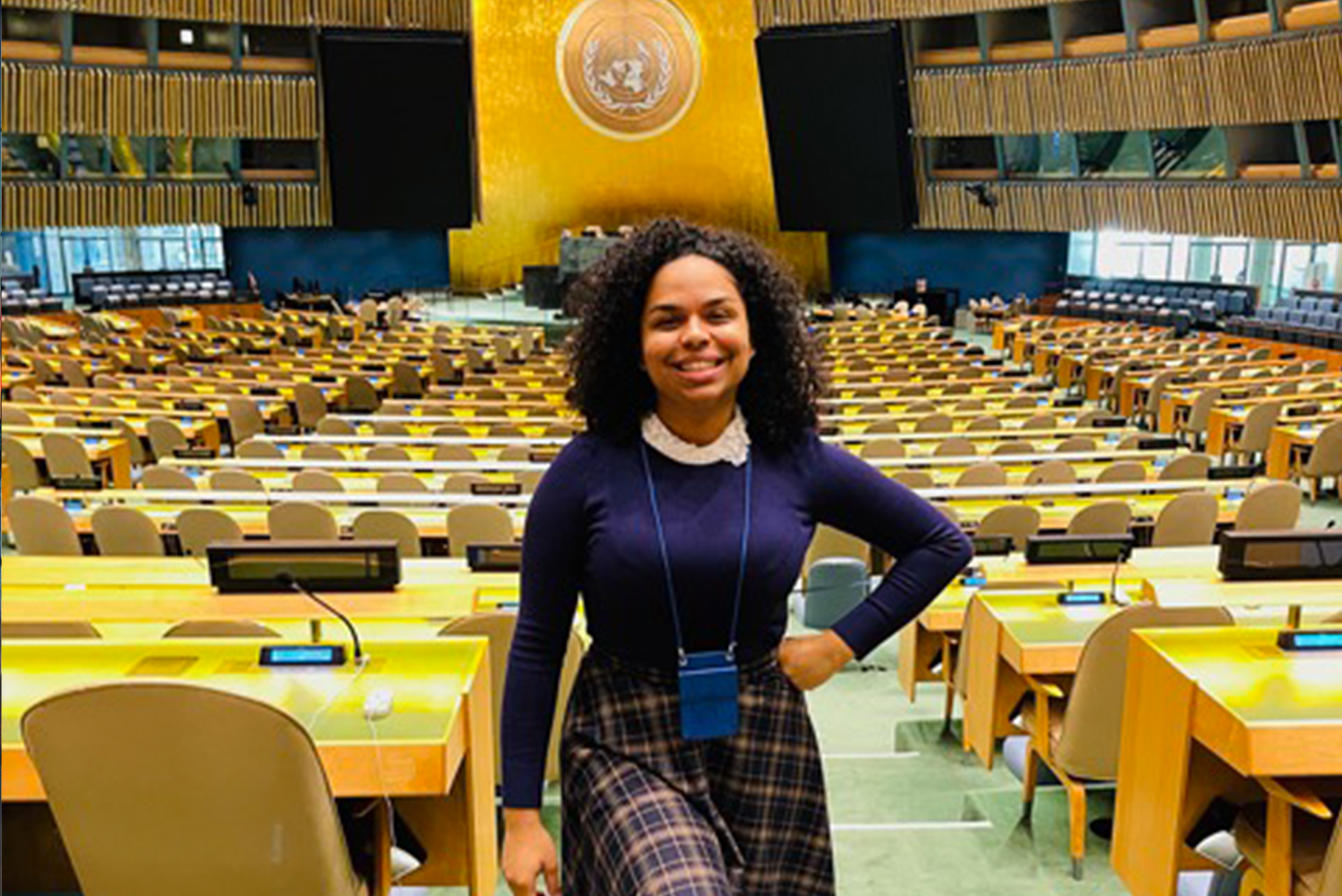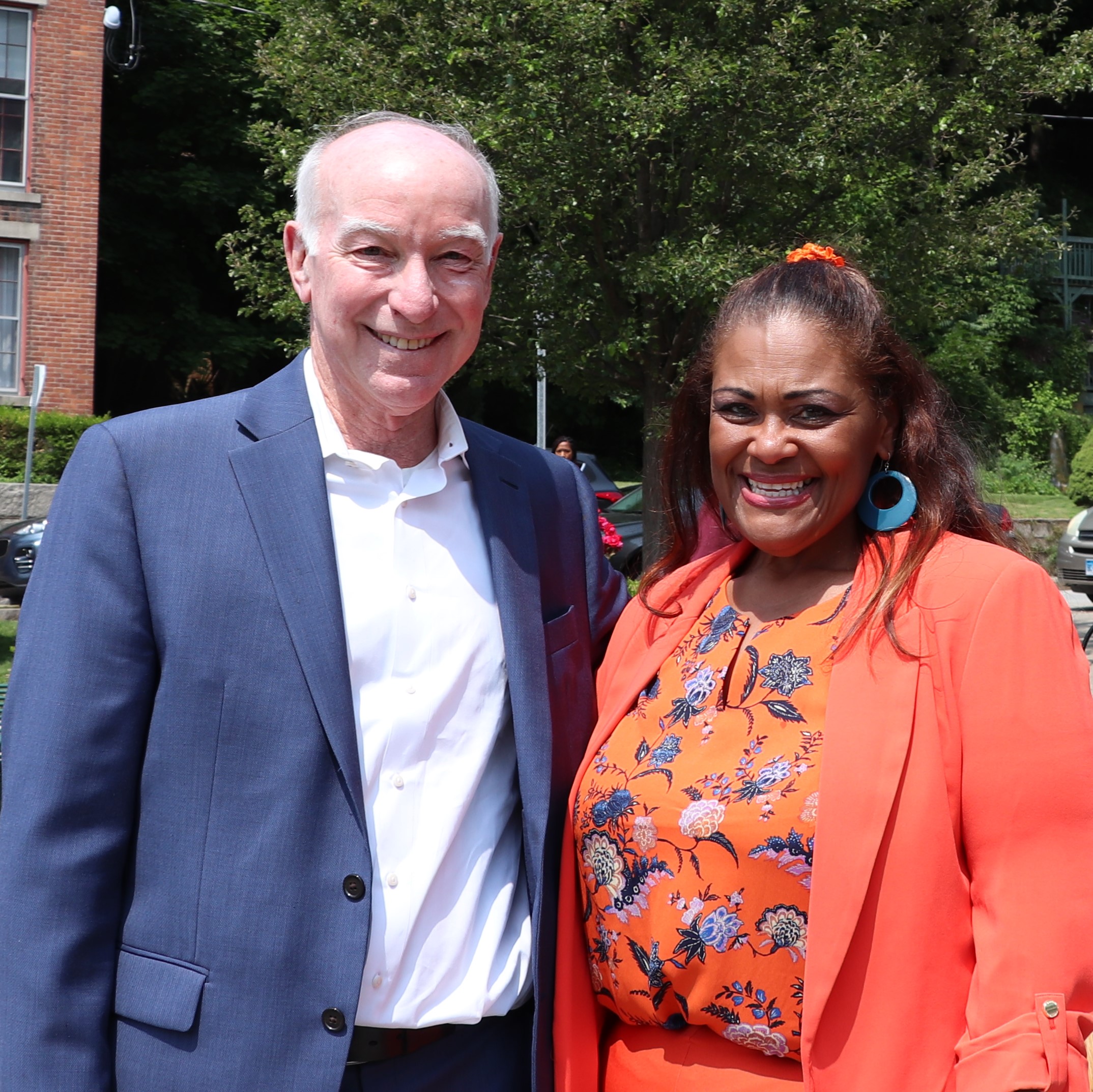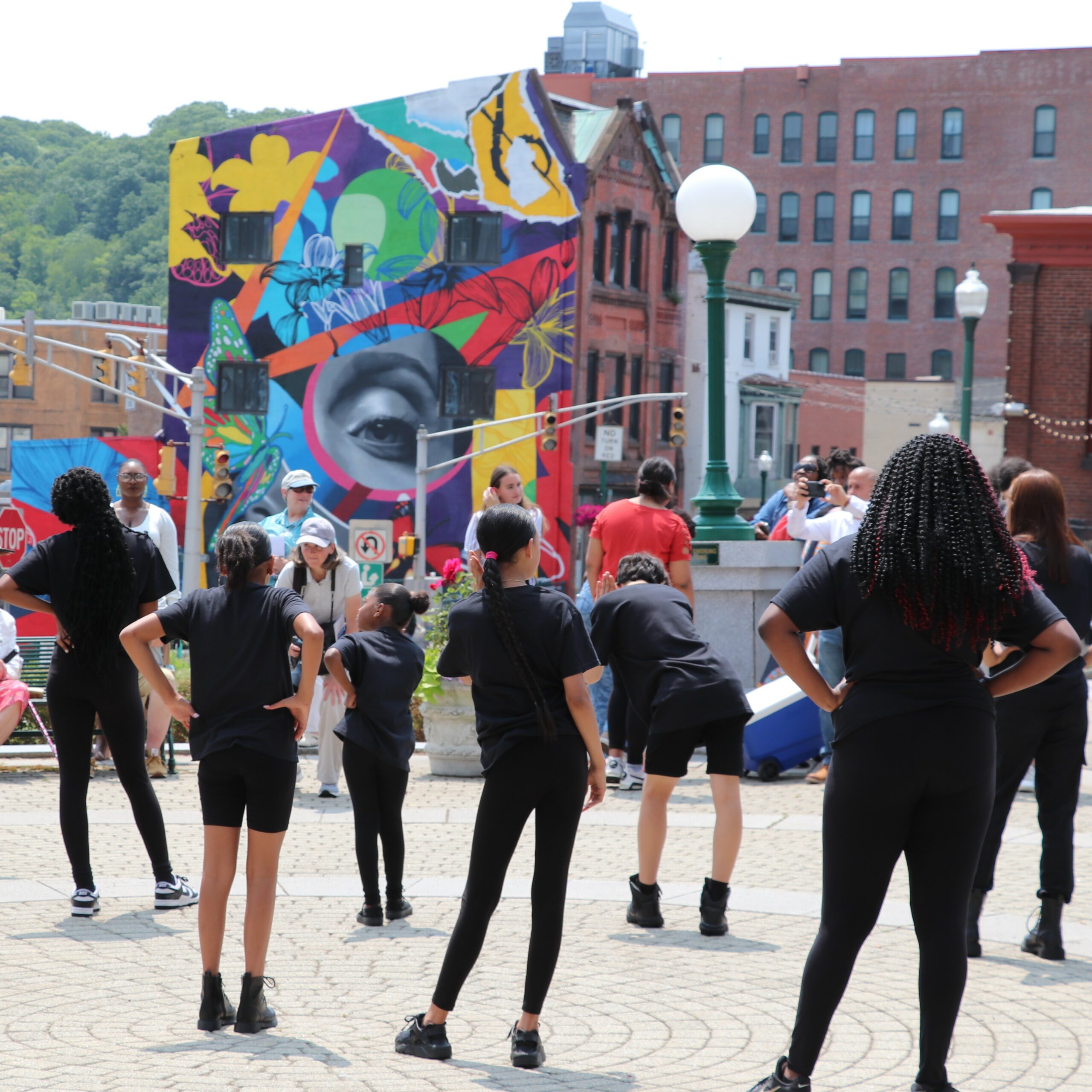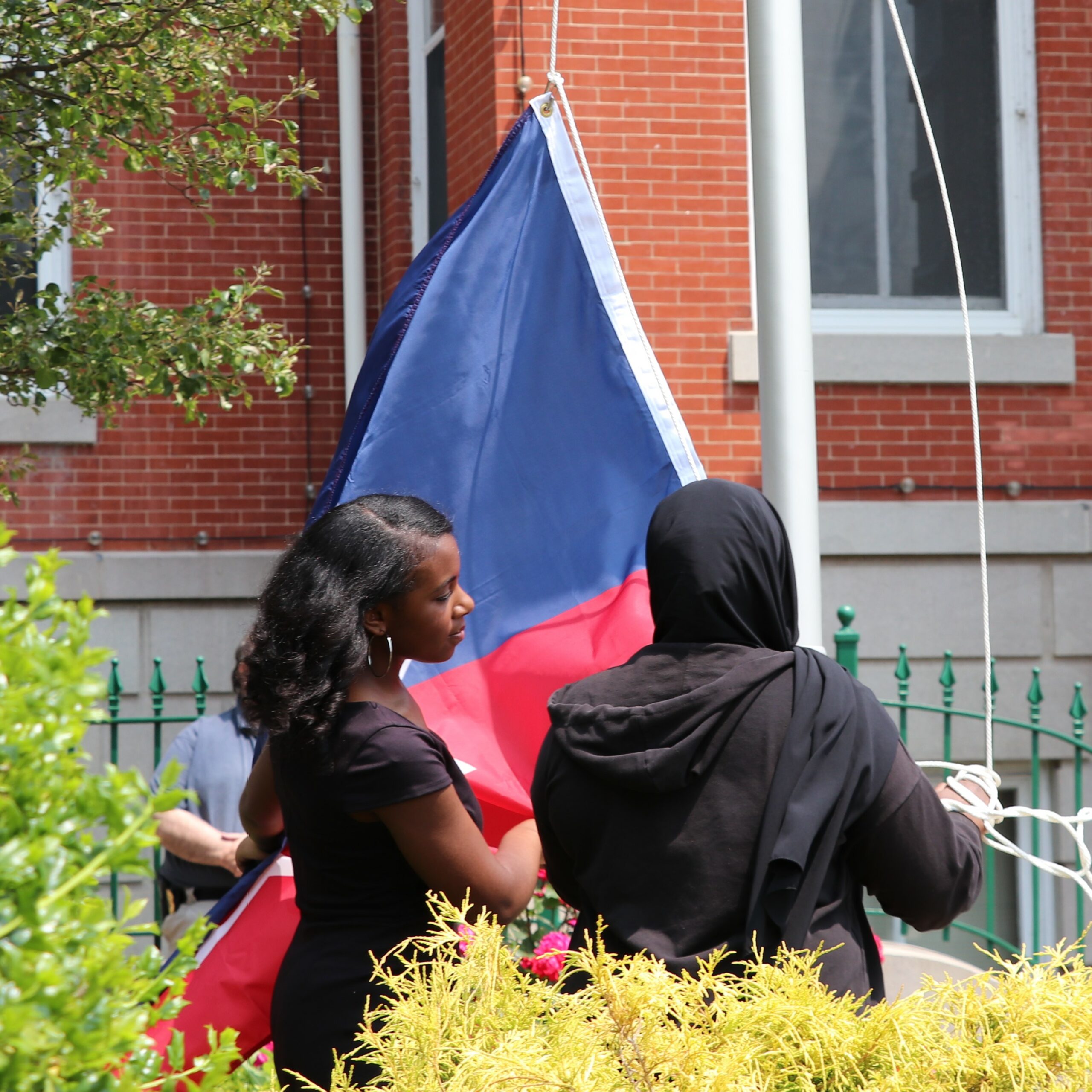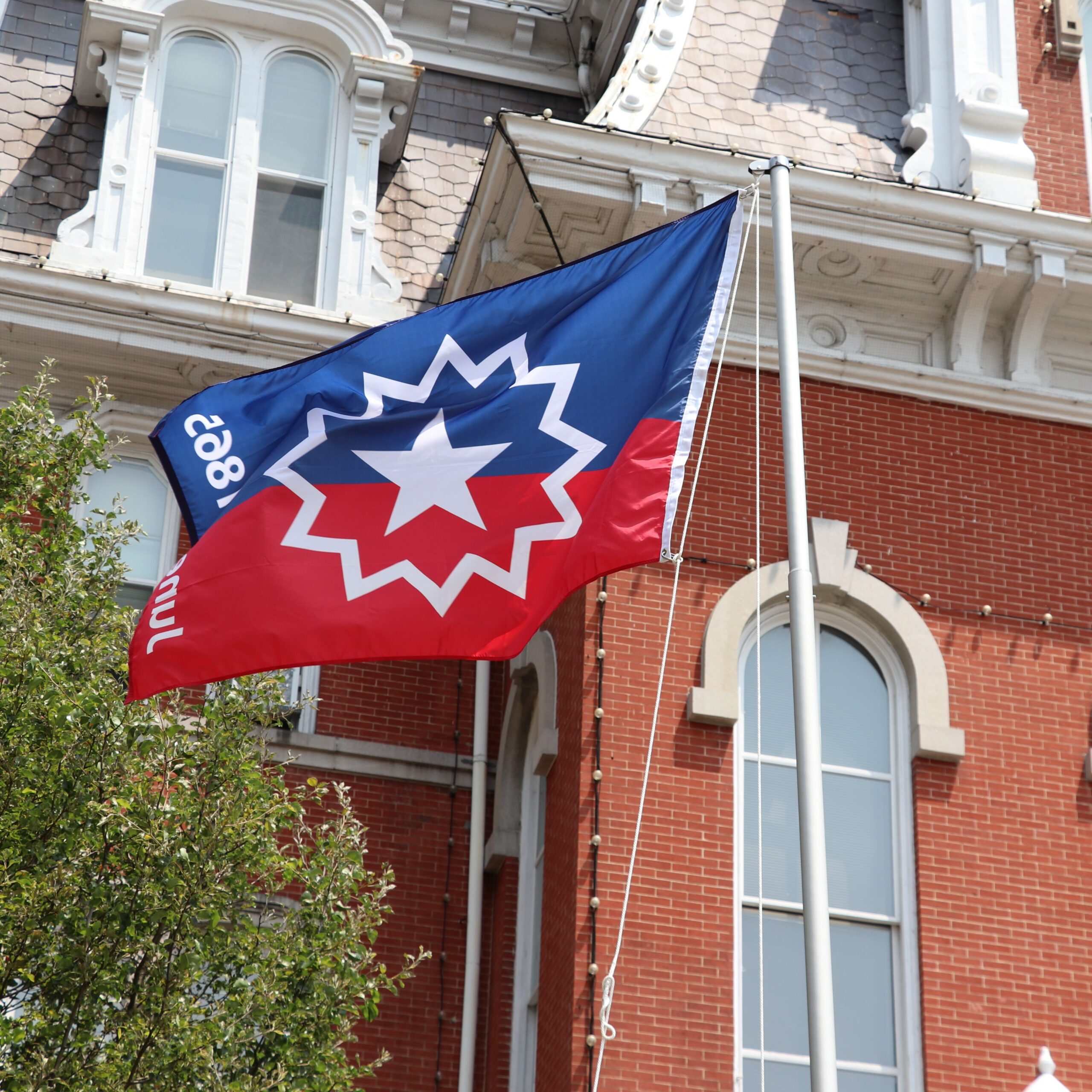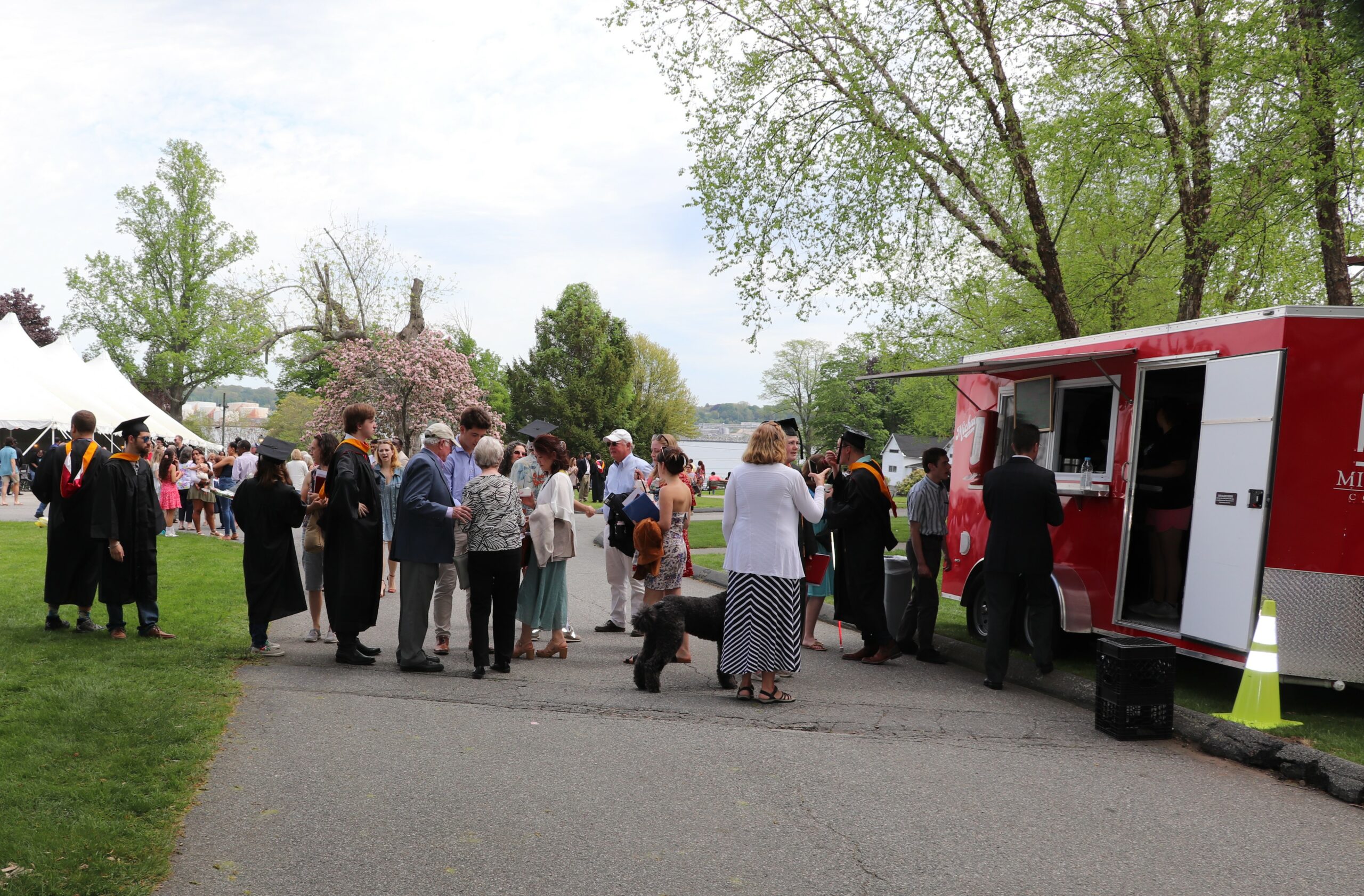Soaring to New Heights for a World of Good
A piece of advice that Pauline Batista ’14 would give to Mitchell College students and graduates is, “Take advantage of the fact that the college is so small. Mitchell is very unique with an extremely nurturing environment. It gives you the confidence you need to go on with your career. Don’t be afraid. Just go out there and dream as big as you’d like because the sky’s the limit.”
Currently a journalist and producer for the UN News division of the United Nations in New York City, Batista is thankful for the strong foundation she built at Mitchell as she pursues her own big dreams.
“The generosity of the faculty and the small setting of the college made a huge difference for me as someone who had recently moved from Brazil. I am very grateful for a generous scholarship that I received, and when I think about Mitchell it’s fond memories and beautiful things.” Batista said.
She earned a bachelor’s degree in communication with a concentration in media production and performance and said that she uses skills and knowledge learned from her coursework and extracurricular activities—like drama—regularly in her job today.
“Classes in persuasion, theater production, filmmaking and video production prepared me well for what I am doing today, especially for knowing how to handle getting that critique when you’re out in the field producing and delivering content. It’s really cool that what I learned in the classroom is what I am doing now in my job,” she said.
After graduating from Mitchell, Batista earned a master’s degree in international studies from the University of Connecticut and continues there in a doctoral program in educational policy, a move which led her to her current job with the UN.
“Mitchell, as a school that wasn’t so overwhelming, helped build the foundation that I needed to go on to UConn, which was a super-overwhelming university experience. Now I’m at the UN, with 35,000 employees. It’s huge, and Mitchell was excellent for helping me build my foundation.”
Batista said that it’s rewarding to use the combination of her degrees in the work she is pursuing. Prior to her full-time job at the UN, she did work with UNESCO (United Nations Educational, Scientific and Cultural Organization), “an organization that was the blueprint for international relations in the world.” She also said she used filmmaking as “a research method to get the attention of policy makers in Latin American countries.”
Today, she said, “typically the stories that I have to cover have to do with human rights or the intersection of human rights and entertainment. They are stories about what the UN does and about folks who work with the UN as ambassadors. My job is super hectic and super rewarding!”
[Editor’s note: Batista’s interview with Mitchell College Communications was conducted as she waited at the Tribeca Film Festival, hoping to ask questions of celebrity UN supporters. See her UN News tweet to watch her in action!]
